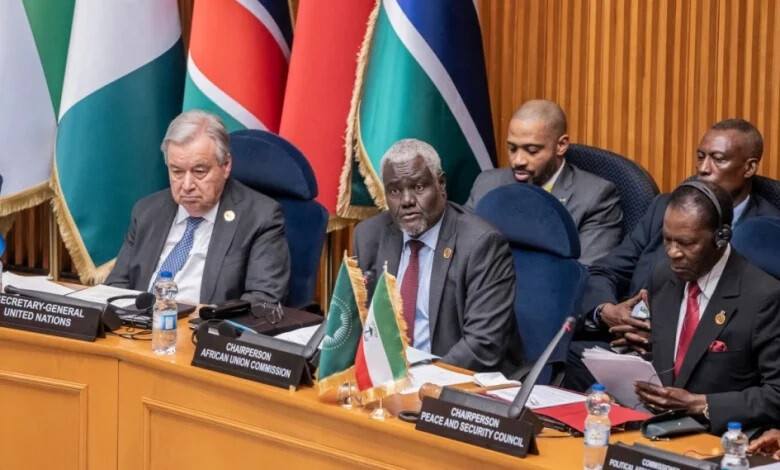
ADDIS ABABA, ETHIOPIA – The 38th African Union (AU) Summit, held in Addis Ababa this past weekend, concluded with a renewed focus on addressing the continent's pressing security challenges, particularly the escalating conflicts in the Democratic Republic of Congo (DRC) and Sudan. Leaders also emphasized the need for self-reliance in the face of dwindling international aid.
The summit, which brought together leaders and delegates from over 50 African nations, was dominated by discussions surrounding the volatile situations in eastern DRC and Sudan. The ongoing violence in both regions has caused significant displacement, human rights abuses, and regional instability.
DRC Conflict Escalation Prompts Urgent Calls for Dialogue and Disarmament
The conflict in eastern DRC, pitting government forces against the Rwanda-backed M23 rebel group, has intensified in recent months, raising fears of a wider regional war. AU Commissioner for Political Affairs, Peace, and Security, Bankole Adeoye, expressed deep concern over the escalating violence, stating, "We are all very, very concerned about the risk of an open regional war over eastern DRC." He reiterated the AU's call for a cessation of hostilities, urging the M23 rebels and their supporters to disarm and withdraw from occupied territories. The summit also emphasized the need to consolidate existing peace processes, specifically the Rwanda Process and the Nairobi Peace Process, to create a more unified and effective approach to negotiations between the DRC government and the M23 rebels. The clashes have resulted in over 3,000 deaths and the capture of key Congolese cities, including Goma and Bukavu, exacerbating the humanitarian crisis.
Sudan's Humanitarian Crisis Demands Action
The nearly two-year conflict in Sudan also drew significant attention at the summit. African leaders condemned the widespread human rights violations stemming from the ongoing fighting. Security analyst Senator Iroegbu stressed the urgency of translating words into action, warning that failure to manage the DRC situation could lead to further escalation. He called for strategic measures, mediation teams, and "African solutions to African problems." The summit underscored the need for a comprehensive approach to address the root causes of the conflict in Sudan and to ensure the protection of civilians.
Beyond Security: Climate Change, Colonial Reparations, and Self-Reliance
Beyond the immediate security crises, the summit addressed other critical issues facing the continent, including the growing impact of climate change and the persistent challenges of food insecurity. Calls for reparations for the historical injustices of slavery and colonialism were also prominent. Ghanaian President John Mahama highlighted the profound economic impact of colonialism, stating, "The continent lost trillions of dollars in both human and material resources due to colonial exploitation." He emphasized that addressing the legacy of colonialism requires more than acknowledgment; it demands concrete action to rectify the ongoing economic disparities and social inequalities faced by descendants of enslaved Africans.
Shifting Focus to Domestic Resources Amidst Aid Cuts
The summit also addressed the implications of recent U.S. aid cuts to Africa. Leaders urged the continent to prioritize self-sufficiency and focus on mobilizing domestic resources for development projects. Ngozi Okonjo-Iweala, Director-General of the World Trade Organization, emphasized the need for a paradigm shift, stating, "Africa we really need to change our mindsets – access to aid I think we can think of it as a thing of the past." She stressed the importance of attracting investments and strengthening domestic resource mobilization as key strategies for sustainable development.
Looking Ahead: Implementation and Urgency
The success of the AU Summit will ultimately be judged by the speed and effectiveness with which its resolutions are implemented. Analysts warn that delays in achieving peace and stability in the DRC and Sudan could lead to further casualties and protracted instability, undermining the continent's broader development goals. The emphasis on self-reliance and domestic resource mobilization signals a potential shift in Africa's approach to development, highlighting the need for sustainable and locally driven solutions to the continent's complex challenges.
[Copyright (c) Global Economic Times. All Rights Reserved.]






























